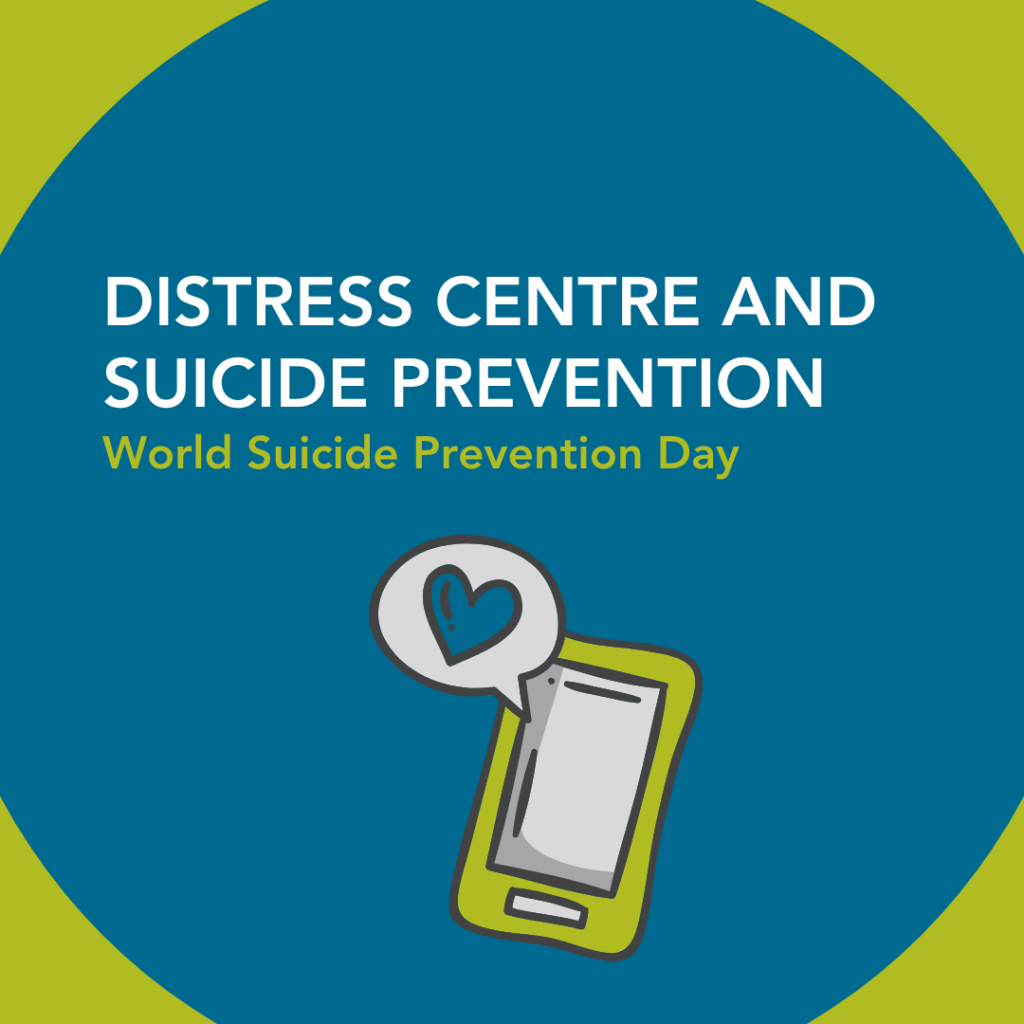Distress Centre and suicide prevention – World Suicide Prevention Day
September 10th is World Suicide Prevention Day. As a crisis intervention agency, Distress Centre works every day to prevent suicides and decrease the stigma that surrounds the topic of suicide and mental health.
If you or someone you know is thinking about suicide, reach out to us for 24 hour support:
Phone or text: 403-266-HELP (4357)
Chat online: www.distresscentre.com (at the top of each page)
Suicide-related contacts
We’ve talked a lot about suicide in the last few years, as we’ve seen an almost continuous increase in suicide-related contacts. In our 2019 Report to the Community, we shared that in 2019 we’d received more suicide-related contacts than ever. In the years that followed and particularly as the COVID-19 pandemic unfolded, the number of suicide-related contacts has continued to rise.
In 2022 so far, we’ve responded to 8,883 suicide-related contacts (up to July 31, 2022), an increase of 8% compared to 2021.
Suicide-related contacts sometimes result in the need for emergency intervention through 911. Involving emergency services is our last resort and we will only do so if someone is at imminent risk of harming themselves or someone else and we are unable to de-escalate the situation. In 2022 so far, just 3% of suicide-related contacts have required us to involve 911.
Distress Centre and suicide prevention
Distress Centre is proud to provide a place where people feel comfortable sharing their struggles. Crisis lines provide connection, support without judgement and hope. Every day we strive to better serve our service users and prevent suicide.
“The continuous increase in suicide-related contacts is alarming to see,” said Robyn Romano, CEO at Distress Centre Calgary. “But we’re also seeing more conversation around topics like these and a collective push for society to do things differently and do things better, and Distress Centre is excited to be a part of that change.”
We know that people are more comfortable talking about suicide through text or chat, versus on the phone. 27% of our crisis contacts have been suicide-related in 2022 and when it comes to text, chat and email support, the percentage climbs to 49%.
In 2021, we introduced crisis text to provide another way to receive support. Since launching crisis text last September, we have responded to 1335 text conversations for help.
In October 2021, we launched 24 hour crisis chat and text support. Providing multiple ways to contact us and having 24 hour availability decreases the barriers that prevents someone from seeking help.
Further work in suicide prevention
Distress Centre is often just the first step for someone experiencing a crisis to receive the help they need. We know that the mental health care system is flawed and that needed resources aren’t always available or available in a timely manner.
Distress Centre is supportive of initiatives to increase ease of access to mental health care. By sharing our data and knowledge we strive to inform policy, planning, research and systems change.
We were pleased to hear the announcement from the CRTC regarding 988, a national 3-digit suicide hotline. A 3-digit line is easier to remember, quicker to dial and creates one entry-point to receiving help, thereby increasing access to mental health and crisis support. We hope that the publicity and availability of 988 will help to decrease the stigma that surrounds the topic of suicide.
Since we know people are more comfortable talking about suicide by text or chat, we hope that text and chat options are being discussed in conjunction with phone support.
We don’t yet know what Distress Centre’s role will be in the rollout of 988. At this time, all we can say is that we are very supportive of this initiative and believe a 3-digit line available to all Canadians will save lives. Distress Centre is part of the Talk Suicide network, Canada’s national, toll-free helpline for people in suicide-related crisis. We’ve responded to 4,658 Talk Suicide contacts in 2022 so far and we’ve been a part of the network since 2017.
How you can help
Part of our work in suicide prevention is freely sharing information to help community members help someone experiencing suicidal thoughts, by recognizing the signs and starting a conversation.
Here are a few guides to assist you in preventing suicide and creating a mentally healthy community:
- 5 steps to help someone having suicidal thoughts
- How to be a better listener
- What to do if you’re worried about someone’s mental health
You can also support suicide prevention by donating or signing up to volunteer.
Need help? Contact us 24/7 by phone, text or chat, or discover our other services.

